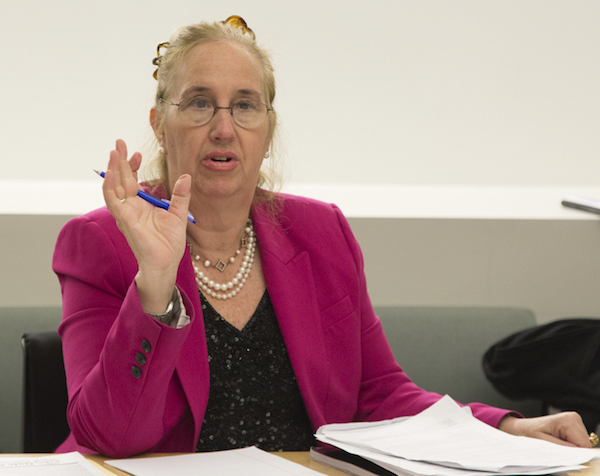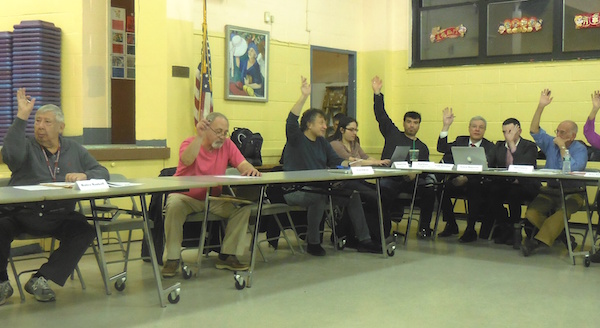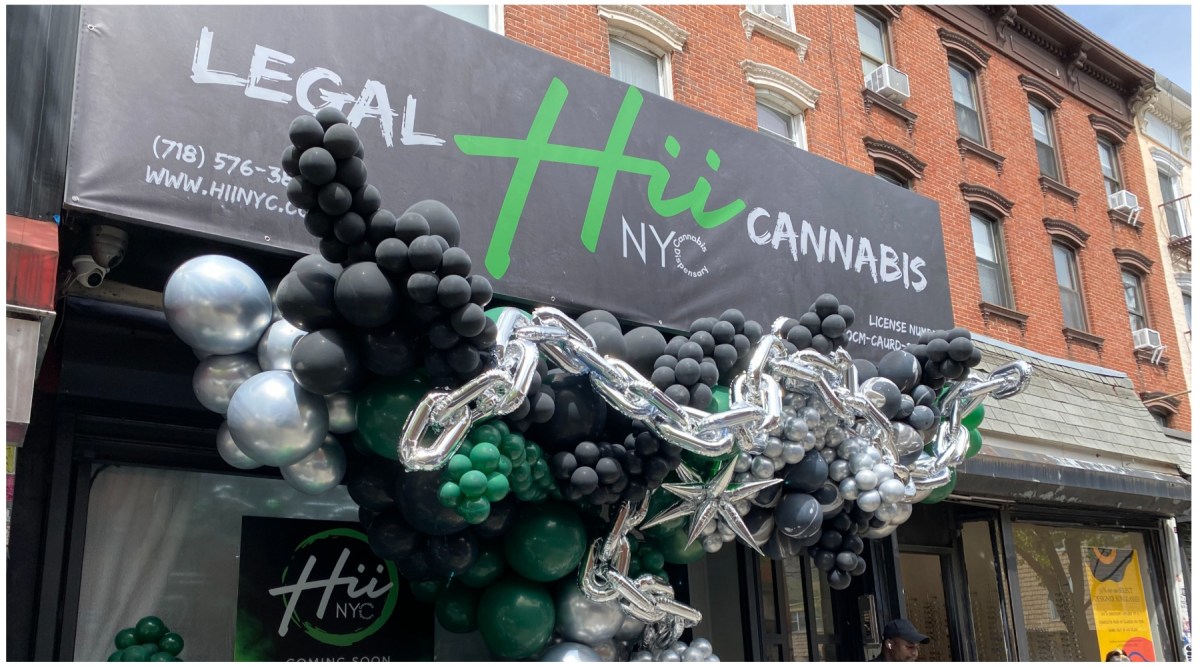
BY YANNIC RACK | Instead of relying on the city to take care of predatory landlords, tenants in Chelsea must join together to fight back, Manhattan Borough President Gale Brewer said last week.
When at risk of being pushed out of their apartments, residents’ best hope is to form tenant groups and seek their own legal assistance, according to Brewer.
“My experience for many years has been, when you have a building you can organize, you have a chance. But as individuals in different buildings, you get the short end of the stick,” she said.
Brewer made the comments during a Dec. 11 interview at the Brooklyn offices of Chelsea Now and our sister publications, where she also spoke about NYCHA’s NextGen plan and the need for more businesspeople to join Manhattan’s community boards.
A landlord trying to move longtime tenants out of apartments, often rent-stabilized, is not a new occurrence. Throughout 2015, Chelsea Now has documented the tactic of landlords who falsify information on Department of Buildings (DOB) applications, in order to conduct illegal construction work. Tenants whose lives are made unbearable vacate their apartments, which can then be turned into illegal hotels or become market rate units.
Rather than wait for help from DOB — which rarely detects false applications from landlords, and whose inspectors are often left toothless in the face of building violations — Brewer suggests that existing support networks should be expanded.
“I do think that you need, literally, tenant organizations that have lawyers and organizers in every single neighborhood in Manhattan, in order to stop this,” she said.
“We do have some tenant groups in Chelsea, thank goodness, but you don’t catch all [of the landlords].”
Mayor Bill de Blasio recently unveiled a new legal services program aimed at helping tenants fight off evictions.
The city will invest $12.3 million into hiring lawyers for the program — bringing total spending to combat eviction and landlord harassment to $60 million, or enough to get 113,000 people legal representation, according to the New York Daily News.
“There are strong and clear laws against such harassment, against forced evictions, but so many of our tenants who are in these situations don’t have the legal support they need,” the mayor said at a Sept. press conference announcing the plan.
Brewer said that while any such effort is helpful, the money is unlikely to reach many of those tenants that are often the easiest targets for ill-intentioned landlords.
“It’s just never enough,” she said. “Particularly for the seniors, a knock on the door and they freak out. They take the money and leave.”
Regarding the DOB and its inspectors, the borough president sees even less hope.
“I don’t know how much is incompetence and how much is [that they’re] short-staffed, but we don’t have enough enforcement,” she said.
“You need something on the ground, almost 24/7, in terms of lawyers and organizers,” she added. “If you don’t have that, no matter how good DOB is, that person is still gonna get nervous [when harassed], and is still going to leave. That’s my experience.”
Brewer also discussed the future of NYCHA’s public housing developments, which have been in the spotlight this year after the agency unveiled its latest plan to save itself from the brink of bankruptcy and preserve the city’s affordable housing stock.
Called NextGeneration NYCHA, the plan details a wide range of issues and proposals, but none is more controversial than the “NextGen Neighborhoods” program, which would allow developers to build half affordable and half market-rate housing on public land.
The program is piloted at two housing developments: one on the Upper East Side, the other in Brooklyn — but NYCHA’s chair and CEO, Shola Olatoye, has said that it would also be rolled out in other “hot neighborhoods” in the future.
While NYCHA expects this to generate hundreds of millions of dollars over the next decade, tenants have long been opposed to so-called “infill housing” because it comes at the expense of open space.
Brewer said the program isn’t ideal, but also added that it is crucial to keep the agency afloat.
“I prefer 100 percent affordable, and less money for NYCHA. To have fifty-fifty is a challenge. On the other hand, I understand NYCHA needs the money,” she said.
But local community boards and residents should have been more involved in the discussions, Brewer told Chelsea Now.
“I’m a big believer in sunshine. If you work together, you have a better product.”
The same philosophy applies to community boards, she noted — especially when it comes to their relations with local businesses, who are more often than not mindful of the boards, who deliberate their liquor licenses and sidewalk cafes.
Rather than find themselves at two opposite ends of the stick, Brewer thinks boards and businesses should be working together, hand in hand.

“We need more businesspeople to be on these boards,” she said. “I know how hard it is. I put businesspeople on Community Board 7 and Community Board 4 when I was in the City Council, but it’s hard. They have to be in their business, so they got off because they just didn’t have the time. This is a real problem.”
In fact, she said business owners can offer valuable insight because of their background.
“It’s nice to have a real businessperson, because then somebody can say, ‘Hey that’s not actually how it works.’ And we need that,” Brewer said.
She also noted that her office was currently accepting applications for community board membership until Jan. 29, and encouraged New Yorkers living, working, or studying in the borough to consider applying.
“Please, if you’re a businessperson, try to get your application in,” she said. “It makes a big difference.”
For details and to apply, visit manhattanbp.nyc.gov.

















